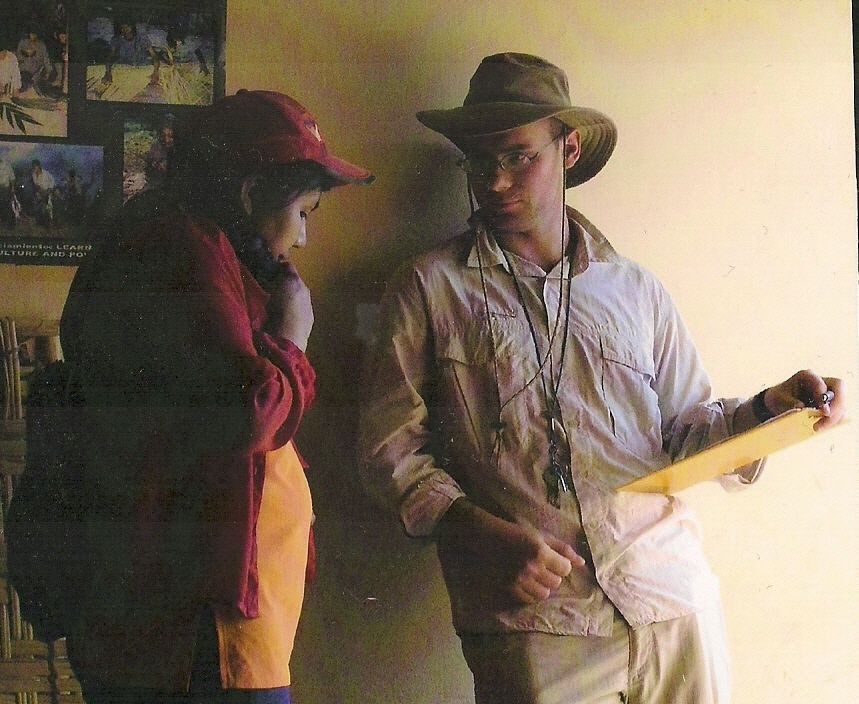
.EDUCATION .
Ph.D. Biological Anthropology. Northwestern University
B.S. Anthropology. University of Binghamton
CONTACT .
Email: a-miller(at)northwestern.edu
Phone: 847-491-7003
Office: 1810 Hinman, Room A63
RESEARCH INTERESTS .
 My research involves working from an evolutionary theoretical background that examines the plasticity of human biology and asks how aspects of biology respond to the environment in adaptive ways. I have over 10 years of experience in the analysis of biological samples, adapting biological collection techniques so that they may be conducted in a more field-friendly way, and instructing in field- and lab-based methodologies. I have done field work in Chicago, Bolivia, Colorado, and Indonesia. These projects have focused on a variety of topics including cross-population hormone (leptin) variation, broad health and nutrition surveys, the impact of living a hunter and gatherer lifestyle, and the health consequences of stress. My most recent work has involved collaboration on an Indonesian energetics and nutrition project and acting as an adviser to help set-up a blood spot analysis laboratory in Indonesia.
My research involves working from an evolutionary theoretical background that examines the plasticity of human biology and asks how aspects of biology respond to the environment in adaptive ways. I have over 10 years of experience in the analysis of biological samples, adapting biological collection techniques so that they may be conducted in a more field-friendly way, and instructing in field- and lab-based methodologies. I have done field work in Chicago, Bolivia, Colorado, and Indonesia. These projects have focused on a variety of topics including cross-population hormone (leptin) variation, broad health and nutrition surveys, the impact of living a hunter and gatherer lifestyle, and the health consequences of stress. My most recent work has involved collaboration on an Indonesian energetics and nutrition project and acting as an adviser to help set-up a blood spot analysis laboratory in Indonesia.
My general research interests include human biological plasticity and variation, human reproductive ecology, energetics, nutrition, breastfeeding, and research methods (both laboratory and field).
SELECTED PUBLICATIONS .
- Tallman PS, Miller AA, Brandley SR, Lee CC, Cepon-Robins TJ, Gildner TE, Collins SM. 2023. Helicobacter pylori exposure among the Awajún of the Peruvian Amazon: Prevalence and environmental, social, and biological associations. In review.
- McQuillan MT, Kuhns LM, Miller AA, McDade T, Garofalo R. 2021. Gender Minority Stress, Support, and Inflammation in Transgender and Gender-Nonconforming Youth. Transgender Health. 6(2), pp.91-100.
- McDade, T.W., Miller, A., Tran, T.T., Borders, A.E. and Miller, G., 2020. A highly sensitive multiplex immunoassay for inflammatory cytokines in dried blood spots. American Journal of Human Biology, p.e23558.
- McDade TW, McNally E, Zelikovich A, D’Aquila R, Mustanski B, Miller A, Vaught L, Reiser N, Bogdanovic E, Fallon K, Demonbreun A. 2020. High seroprevalence for SARS-CoV-2 among household members of essential workers detected using a dried blood spot assay. medRxiv (preprint).
- McDade, T.W., McNally, E., D’Aquila, R.T., Mustanski, B., Miller, A., Vaught, L., Reiser, N., Bogdanovic, E., Zelikovich, A. and Demonbreun, A., 2020. Enzyme immunoassay for SARS-CoV-2 antibodies in dried blood spot samples: A minimally-invasive approach to facilitate community-and population-based screening. medRxiv (preprint).
- Miller AA, Indriati E, Leonard WR. 2018. Influence of nutritional status on basal metabolic rates among rural agriculturalists of Ngilo-Ilo, East Java. American Journal of Human Biology. 30:e23169
- Hoke MK, McCabe KA, Miller AA, McDade TW. 2018. Validation of endotoxin‐core antibodies in dried blood spots as a measure of environmental enteropathy and intestinal permeability. American Journal of Human Biology. 30 (4): e23120.
- Miller AA, Sharrock KCB, McDade TW. 2006. Measurement of Leptin in Dried Blood Spot Samples. American Journal of Human Biology. 18(6): 857-860.
- Vitzthum VJ, Spielvogel H, Caceres E, Miller A. 2001. Vaginal bleeding patterns among rural highland Bolivian women: Relationship to fecundity and fetal loss. Contraception. 64: 319-325.


